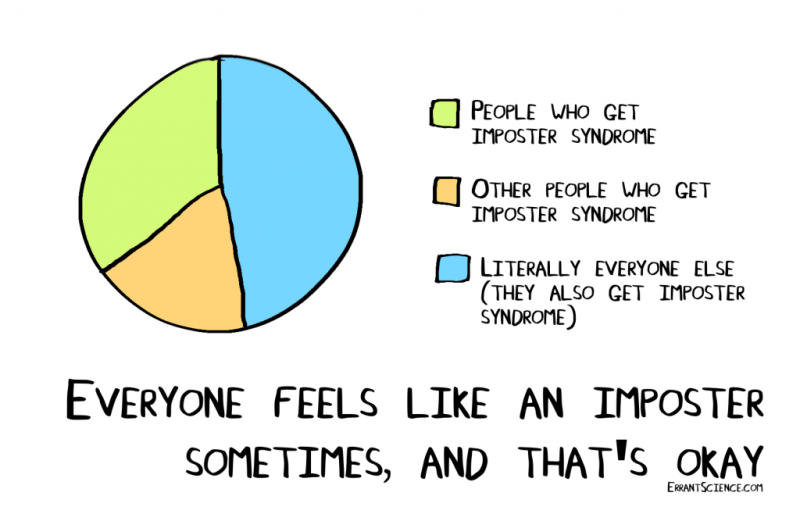
Halt! Who goes there?
Brian Bush Online Imposter Syndrome

Impostor syndrome (also known as impostor phenomenon, impostorism, fraud syndrome or the impostor experience) is a psychological pattern in which an individual doubts their accomplishments or talents and has a persistent internalized fear of being exposed as a “fraud”.
Weirdly while many people struggle with imposter syndrome, many people discuss it and there is lots of content around detailing the issue the ‘owner‘ often feels very alone in their feelings. Those feelings may include the idea that you don’t belong, that you are a fraud and this will be discovered and you will be ruined and shamed, that you don’t deserve your job, friends, business or any success.
First identified by psychologists Pauline Rose Chance and Suzanne Imes in the late 70’s much research and new knowledge has developed since. Initially thought to affect women only opinion among the psychology field soon balanced out the issue across the sexes and also attached the effect to all sorts of people .
I know in my own experience I have had these feelings occasionally and they have also at times held me back from doing things. Challenged my own beliefs in myself and had me feel like a fraud for no fraudulent behaviour at all. Like seeing a police officer and worrying you have done something when you know full well that you haven’t.
I also know people who are exceptional at what they do and struggle with this and according to the International Journal of Behavioral Science an estimated 70% of people experience these feelings at some stage of their lives.
So what do we do? Live with it, ignore it or cure ourselves. Of course there are different strokes for different folks and ultimately we control the onset of the thoughts that trigger the emotions. We can therefore review the thoughts and question them as they arrive and then frame our thinking differently to oppose the negative pattern. We can learn to think like non-imposters says expert Valerie Young
In my coaching work I find that investigating the issue using evidence helps as you must support the negative pattern by proving it actually exists. So if someone is struggling with this aligned to feeling inferior as a team manager for instance what evidence supports their claim? Proper hard evidence and not just negative self assumption. Are they getting complaints or constantly underperforming and this is being picked up in assessments or by their manager? If no real evidence supports this then it can be discussed to identify that this is a self developed emotion triggered by self doubt and then dealt with relevantly to the individual.
People struggling can be encouraged to share their thoughts with others to reassure them that they are not alone and in fact the people they assume to be successful may be triggering those same thought patterns themselves.
So most importantly we will all have moments of doubt and this is perfectly normal and the aim is not to think that you should never have these moments but to equip yourself with the knowledge and techniques to balance yourself out again. Again to Young who states that you can still have an imposter moment, but not an imposter life.
You can view this article from Brian Bush, Business Growth Specialist here